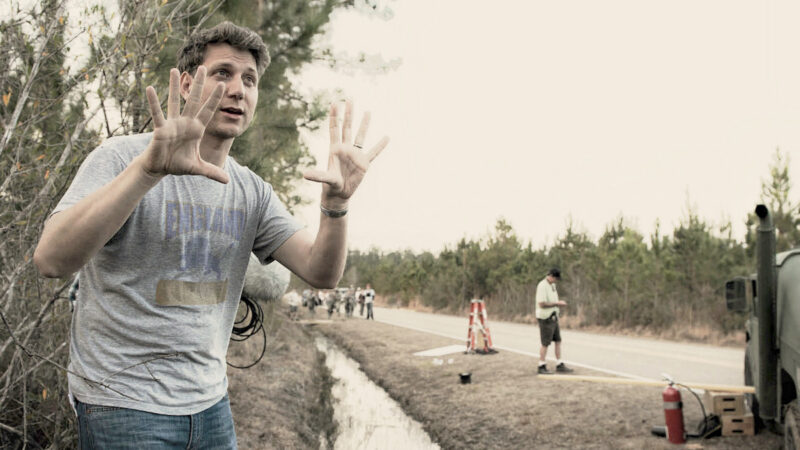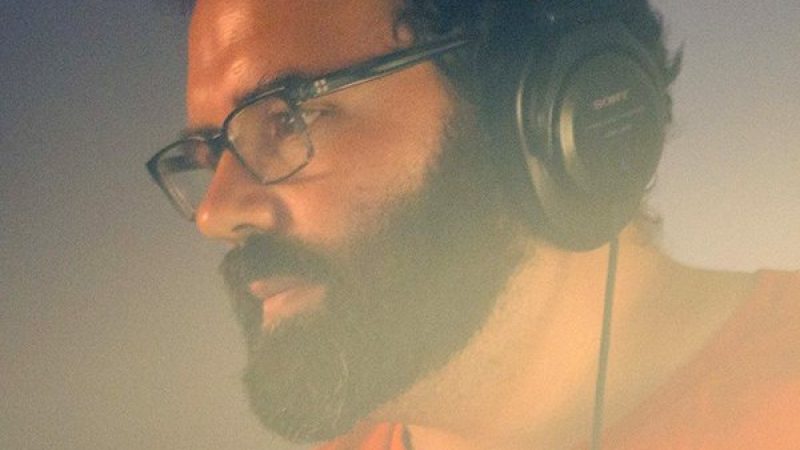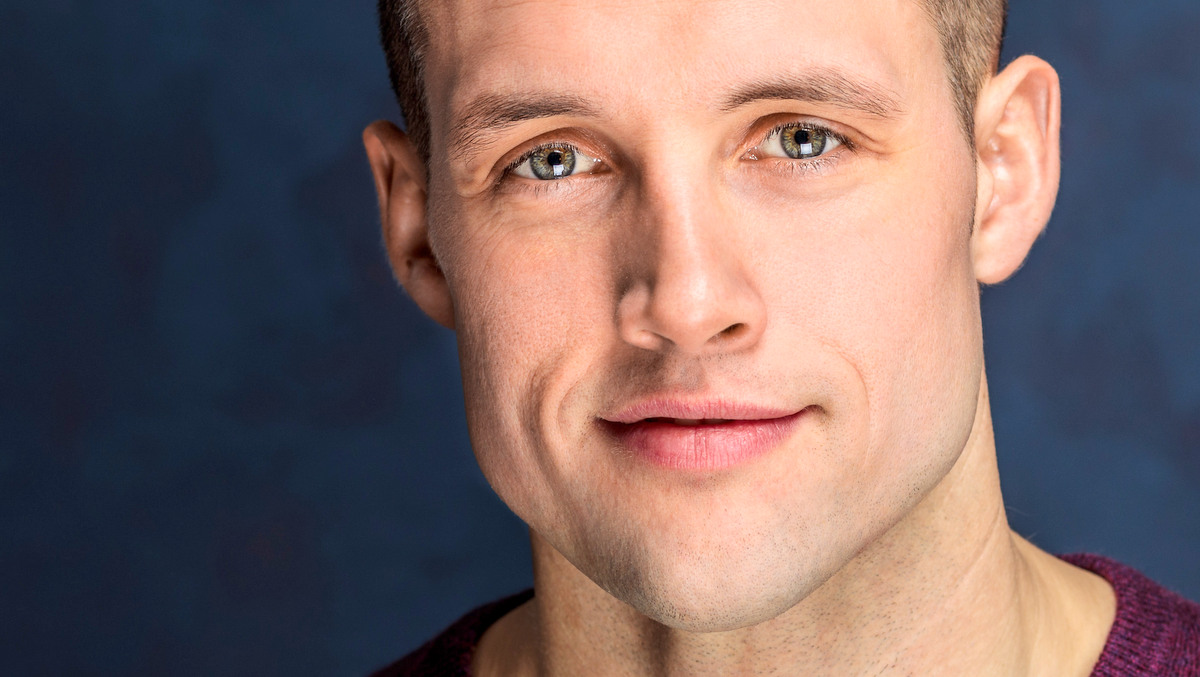
Steve Aaron-Sipple is a British born actor. He is highly trained in screen combat, horse riding. Steve works primarily in film and television, performing his own stunts. He is represented theatrically by Ryan Iosco-Holmes at The Foundry Personal Management.
He talks about his work on Card Dead a dark, humorous thriller, which will appeal to film lovers everywhere. Card Dead is a sequel of Killing Lionel, the independent low-budget film shot in Southwest, England in 2015, released 2019.
indieactivity: How did you get connected to the project? Did you have to audition? If you did, would you still have got the part?
Steve Aaron-Sipple (SAS): A friend posted the casting for the few characters that ‘Card Dead’ hadn’t found yet on Facebook. You see castings all the time online. Luckily Card Dead needed a character that I fit the description. So I got in touch with the casting team, and performed a self-tape and got offered the part!
Watch the trailer for Card Dead starring Steve Aaron-Sipple as Billy (pro-gambler)
What part of the story challenged you when you read it? What drove you to get on the project?
Steve Aaron-Sipple (SAS): So the film is based around a game of poker. My character is a professional gambler, so for me I knew how to play poker. I learnt how to handle cards and chips like a great player!
So, there was a lot of practicing with poker chips prior to filming. I wanted to get on this project, because I had seen the director’s previous film. I liked his film style. After reading the script, I was excited to see what he could do!
You’re not new to indie films. What do you enjoy about the work that keeps you working?
Steve Aaron-Sipple (SAS): It’s a collaborative effort to make indie films, that’s what I love, the producers, directors, actors all know that there isn’t a bottomless money pot to fund their brilliant stories, so they make it themselves, and thank god they do, because collectively there has been some amazing content being put out there!
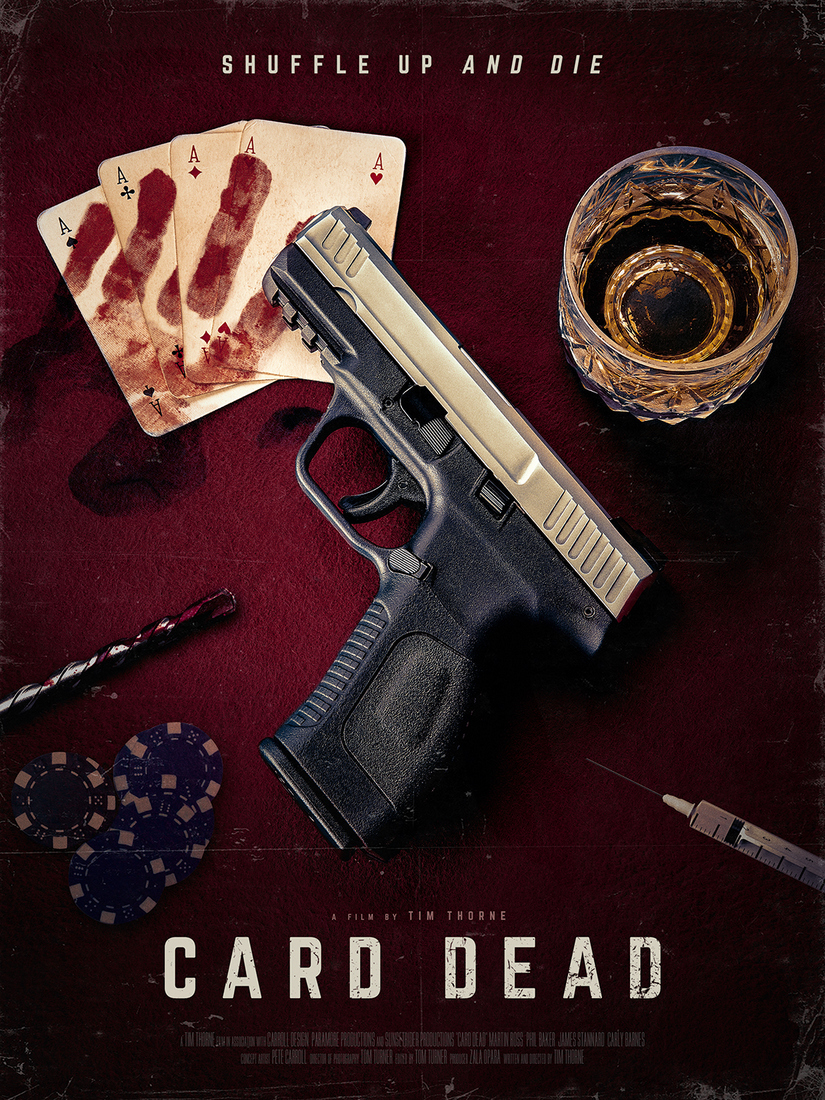
Give an example of a direction you received from the director during the production?
Steve Aaron-Sipple (SAS): I had to do a particularly horrible scene where I had to berate the other character, and I was doing it quite well, but the director changed my point of view for doing it, he made it about statuses.
In the previous scene I had just been berated myself, so he told me to imagine instead of doing it just for the sake of it, my character was doing it to regain some of the power he had just got taken away, he made me doing it more about me and less about the other character, it was quite enlightening at the time.
How did you create your character from ground up?
Steve Aaron-Sipple (SAS): I read the script first to see if the writers put anything about the characters backstory within it, and then I write my own more detailed version of who I think the character is, where they have come from and where they want to go.
I then relate this to the script, I give my character an objective, what’s at stake if they don’t achieve their objective, and what obstacles are in their way. I find this helps me think in character as well as makes my lines flow more naturally.
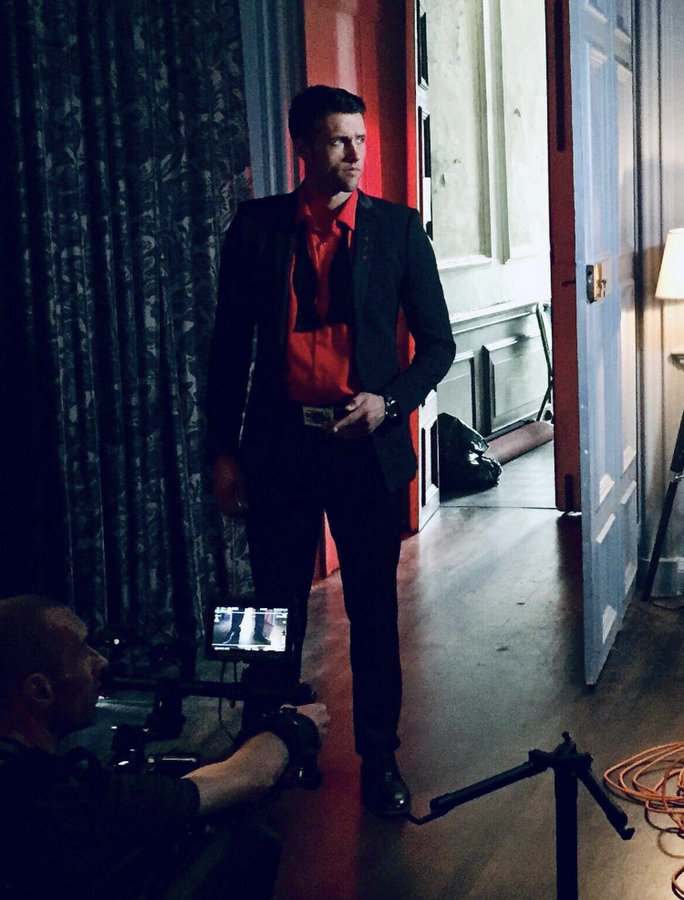
As the main cast in the film, describe the feeling of responsibility that you shouldered. Were you scared? Or did it fire you up? What scenes were difficult to shoot?
SAS: In any filmmaking, time is of the essence, but more so in indie filmmaking, because we don’t always have the luxury of having loads of people on set. Whereas a big budget will have 2 people doing the same job, an indie film will have the same person doing 2 jobs.
So you try to make sure that it’s not you, as an actor, messing up takes, making sure you are hitting your marks and not fluffing your lines. But I kind of thrive on that pressure luckily!! I shot a scene in a toilet in this film, quite an aggressive scene with a lot of depth to it, but the toilet was barely big enough for the 2 actors, let alone any crew and equipment, so that was quite tough to do that scene a few times in confined space!
Explain one creative choice you made on set during production?
SAS: It was actually that toilet scene I just mentioned. I had all my lines down, and I had an idea of how I envisioned this scene would pan out. Basically, without giving too much away my character was getting threatened by another, and I had it in my mind I was going to be defiant.
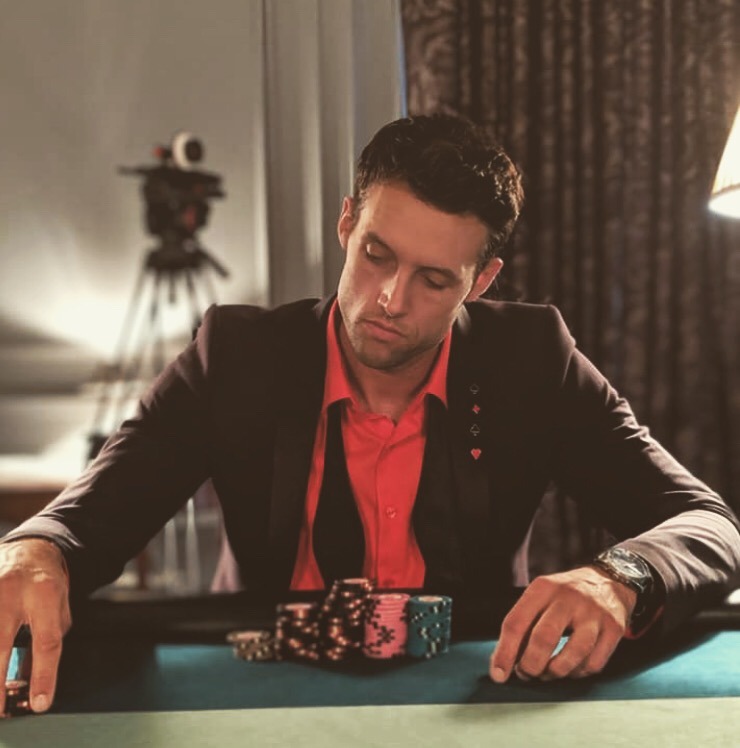
But for me it didn’t work and was bland, so I decided to adopt a little Meisner in my performance and just completely listen to my scene partner and whatever came out that was right as it was natural, and I think it worked, the director and DOP really loved that scene after we shot it!
What did you take away from the film production?
SAS: I loved being a part of this film, sometimes on bigger budget projects it’s easy to do your job and not have interaction with anyone, but on Card Dead it was like a family, we all got to watch and be a part of the whole film, I got to help with some of the stunts which is always fun, I got to sit and watch the monitor as filming was taking place, it was just a great environment, I would happily work with sunset rider productions tomorrow if they asked me to.
What do you like most about the director, and his/her collaboration with his/her team?
SAS: I think that although he had an idea about every character and how the scenes should play out, he was so open to everyone’s interpretation, letting people make little changes to lines to suit their characters, as long as it stayed within the context of the story. He was very hands on, it was a great atmosphere to be creative in, which is great, it gives you more confidence in your own performance.
What is next for you?
SAS: I have had a few exciting auditions as of late which I have my fingers crossed for, but at the minute I’m focusing on getting my 0-1 visa for America as I want to head over to LA for pilot season next year. I’ve been lucky enough to be signed by an LA based management company recently and they want me fly over to meet some people and hopefully get some auditions.
What advice do you give actors regarding what you learnt on the project?
SAS: Make sure you know your lines, give your character a thought process to justify everything they do in the film, be open to things changing, a lot, especially on indie films, watch what other people do, not just actors, everyone, learning about the process of filmmaking makes you a better and more considerate actor, and just enjoy the process, it’s why we all become actors, because we love it!!
Tell us what you think of the interview with Steve Aaron-Sipple. What do you think of it? What ideas did you get? Do you have any suggestions? Or did it help you? Let’s have your comments below and/or on Facebook or Instagram! Or, join me on Twitter.
Follow Steve Aaron-Sipple on Social Media
Website
IMDb
Facebook
Twitter
Instagram
Backstage
MORE STORIES FOR YOU
The Key Facts Behind How Jeff Nichols Made The Indie Hit MUD
Jeff Nichols gives himself directorial challenges to master on every project.
In Conversation with Michael Oblowitz Director of Confidential Informant
Confidential Informant stars Mel Gibson, Dominic Purcell, and Kate Bosworth

